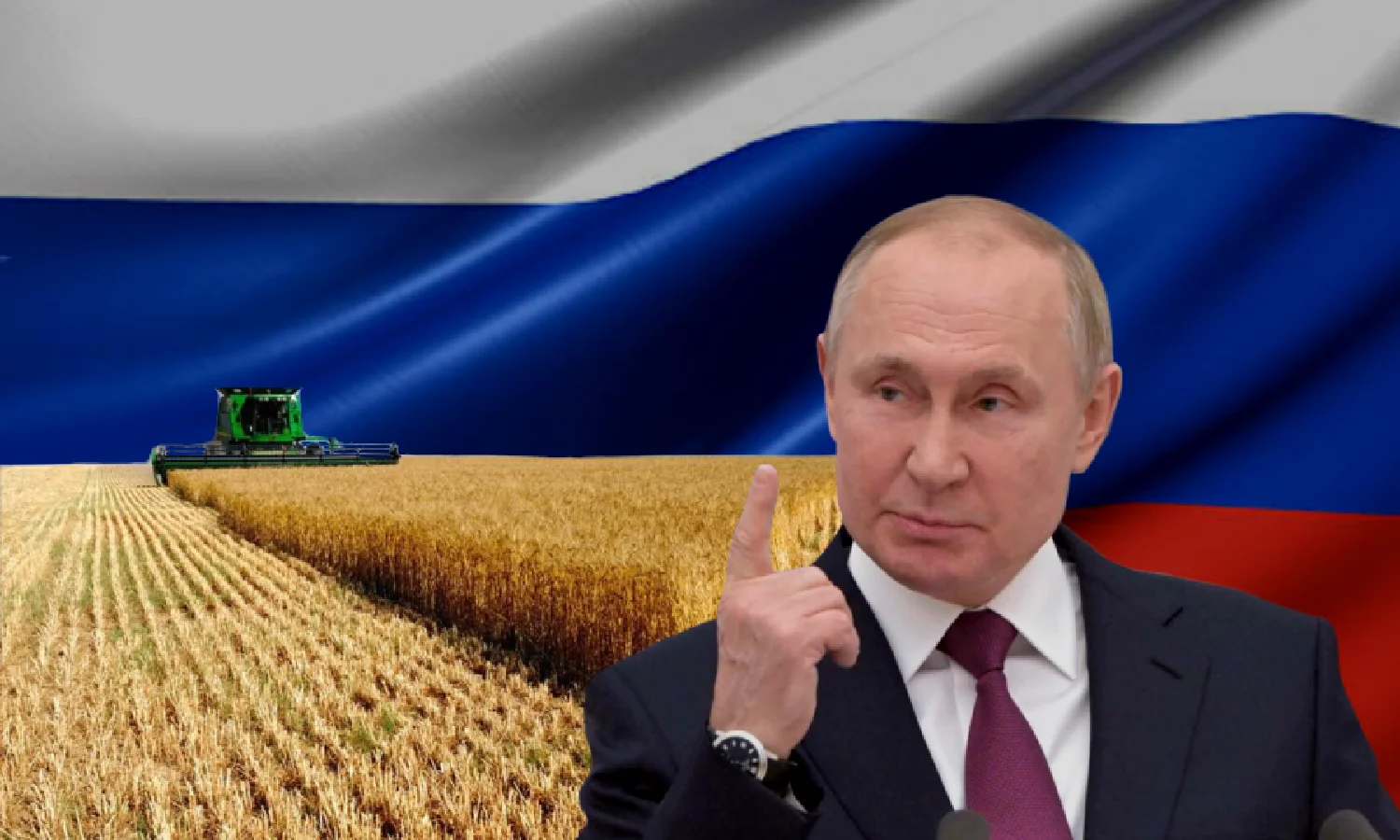
Would you like to support me so I can continuously improve?
Jul 17, 2023
Moscow announced today the suspension of the agreement for the export of grain through the Black Sea from Ukrainian ports, after denouncing that the commitments with Russia have not been fulfilled. The deal allowed food to continue flowing from Ukraine for the duration of the war, which is one of the world's largest grain exporters.

Basically, it is a maritime blockade typical of a war of conquest. The United Nations has warned that some countries in the Middle East and Africa would face famine if Kiev could not export its products across the Black Sea.
Russia, which is seeing its own food and fertilizer exports deteriorate due to Western sanctions, had already expressed its intention to end this pact.
When Russia invaded Ukraine in February 2022, its navy blocked Ukrainian ports on the Black Sea.
The deal, negotiated in July 2022 by Turkey and the UN, guaranteed the safety and passage of cargo ships along a Black Sea corridor to and from three Ukrainian ports. It has since been hailed as a major diplomatic victory that helped ease the food price crisis sparked by the Russian invasion.
This Monday Moscow claimed that it could no longer guarantee the safety of navigation in the northwest of the Black Sea.
"The Black Sea agreements ceased to be valid today," Kremlin spokesman Dimitri Peskov told reporters in a conference call.
A partial agreement
Since the outbreak of the war between Russia and Ukraine, thousands of tons of grain had been stranded in a Ukrainian port. After several months of stagnation in the negotiation attempts between the parties, the disputed nations finally reached an agreement to resume the release of this food.
The agreement signed in July 2022 allowed the free circulation of Russian and Ukrainian agricultural products to the world while the war continued its course. It was signed in Turkey by representatives of both countries and the UN.
Basically, it is an agreement based on the creation of a safe route in the Black Sea that reaches the Bosphorus Strait, in Turkey, where a joint coordination center will be established in Istanbul that includes representatives of the UN, Ukraine, Russia and Turkey.
The signing of the agreement by the disputed nations was considered a great diplomatic achievement that prevented a global food crisis.
A year after the signing of the agreement, Putin expressed his disagreement with what he considers a partial breach of it, given that shipments of Russian fertilizers remain practically paralyzed.
The Russian Federation assures that the West is breaching the basic premises of the agreement. The export of Russian grain, which should have been carried out in parallel to the export of Ukrainian grain, is encountering multiple trade barriers as a result of the validity of some of the "sanctions" imposed on Russia since the beginning of the hostilities.
The representative of the Ministry of Foreign Affairs, María Zajárova, pointed out that "in order to achieve a total solution to the food problem, it is necessary for Western countries to guarantee the conditions of access of Russian fertilizers and food to the international market, that is, to lift financial obstacles and logistics created by its sanctions".
In this way, the agreement became invalid on July 17. The Kremlin's position is clear. It will not extend the agreement unless its demands are met, including a guarantee that its agricultural products do not face international obstacles.
An attack on global food security
From the West, reactions to the decision of the Russian president were not long in coming.
European Union Commission President Ursula von der Leyen accused Russia of taking "cynical action" and added that Brussels was trying to "ensure food security for vulnerable people in the world."
"I strongly condemn Russia's cynical move to end the Black Sea Grain Initiative, despite the efforts of the UN and Turkey"
-expressed the diplomat on his Twitter social network profile.
If we must extract something that is important from the president's statements is the part in which she refers to the fact that this decision will end up affecting "the most vulnerable people in the world."
Actually, this is a fact, the suspension of the agreement not only has direct consequences for Ukraine, but this decision will also affect nations that depend on grain imports from this region.
Ukraine is one of the world's largest exporters of sunflower, corn, wheat and barley. It is a key piece in the global food supply chain.
Among the countries that depend on Ukrainian grains are; Moldova, Lebanon, Qatar, Tunisia, Libya, Pakistan, Egypt, Bangladesh, etc.
In this regard, the return of withholdings to Ukrainian grain exports will have repercussions on the prices of markets around the world. But the effect of this new restriction will not be the same for all nations.
The greatest weight of this decision will have to be borne by the poorest countries of Africa and the Middle East.
Once again in the history of humanity, hunger is once again used as a weapon of war and civilians as the main objectives of the war strategies of the protagonists of hostilities. But this time, we are witnessing first-hand the terrible consequences of the decisions made by actors outside the battlefield.
It may also interest you